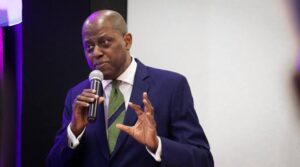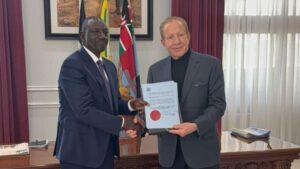Social media has erupted with debate regarding Seyi Tinubu, the son of President Bola Ahmed Tinubu. A tweet from DrOaikhena raises questions about his involvement in government, stating, “Did you say Nigeria is a country? Can someone tell me the constitutionally provided office for Seyi Tinubu? Has any President’s son ever done this? This is what happens when power-drunk kleptos take over your country.” However, it is important to examine this assertion more closely.
To clarify, Seyi Tinubu does not occupy any constitutionally recognized position. Nonetheless, this fact does not imply an abuse of power. Globally, the children of presidents have often played influential roles in governance, politics, and charitable activities without holding formal titles. For instance, Hunter Biden in the United States and Robert Mugabe Jr. in Zimbabwe have both wielded varying levels of political sway.
The more pertinent question is whether Seyi Tinubu is leveraging his influence positively. The evidence suggests he is. As a young entrepreneur and philanthropist, Seyi has made significant contributions to youth empowerment, technology, and sports development. His participation in national issues, regardless of his official status, does not inherently indicate corruption. Influence does not equate to exploitation.
It is unrealistic to expect that every child of a political leader should remain silent and disengaged. Would we prefer they engage constructively in national discussions rather than remain passive observers?
Instead of being swayed by the uproar on social media, Nigerians should focus on holding all public figures accountable for their actions, regardless of their elected status, rather than relying on assumptions. Seyi Tinubu’s involvement in national conversations does not violate constitutional norms; rather, it reflects the influence that comes with being part of a political family, a phenomenon observed worldwide.






